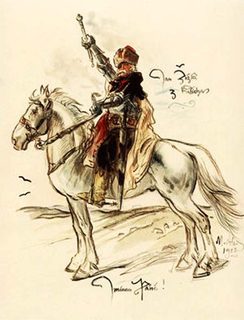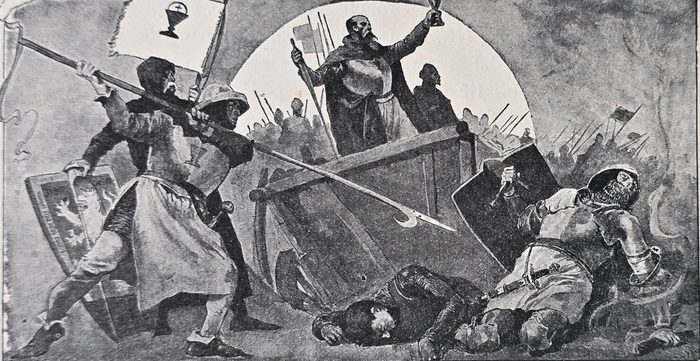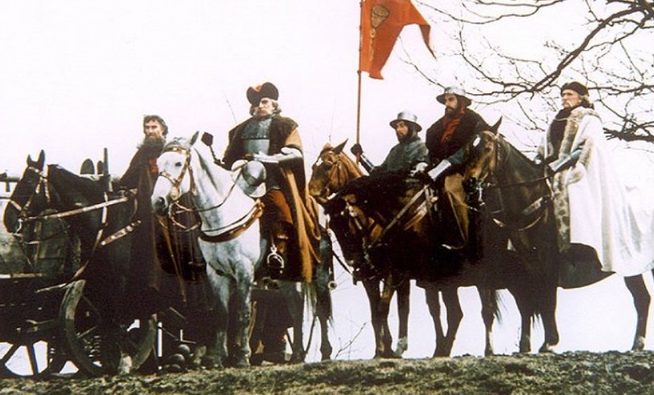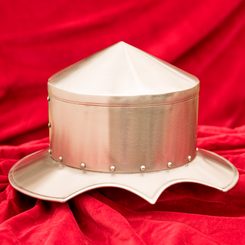Jan Žižka - Hussite leader

Jan Žižka - the brilliant military leader of the Hussites.
Jan Žižka of Trocnov (*c. 1360, +11. 10. 1424) remains a legendary figure in the Hussite movement, though much about his childhood is shrouded in mystery, his adventurous life in later years is well-documented. For a long time, Žižka vacillated between the professions of brigand and mercenary until he received a pardon from King Wenceslaus IV. From 1409 onwards, he served as a mercenary in the army of the Polish King Vladislaus II Jagiello, who was waging war against the Teutonic Order. By 1414, Žižka was in Prague, now in the service of Wenceslaus IV. It was here that he encountered the teachings of Jan Hus, which profoundly influenced his thinking. Jan Žižka took up arms in support of the Czech Reformation for the first time during the Prague Defenestration on July 30, 1419. His reputation as a capable and soon-to-be-famous commander began to solidify when he marched towards Pilsen later that year. This was further affirmed by his victories at Nekmíř (1419/1420), Sudoměř (1420), and the Battle of Vítkov in Prague (1420). Between 1420 and 1422, Žižka effectively operated throughout the entire territory of Bohemia, conducting armed actions against ecclesiastical estates, Catholic towns, and the castles of the Catholic nobility. He defeated the forces of the Second Crusade in the battles of Kutná Hora and Nebovid around the turn of 1421 and 1422. Following the dispersal of this crusade's army in the Battle of Habry and the capture of Německý (Havlíčkův) Brod, Žižka was knighted on January 11, 1422. Towards the end of his life in 1423, Žižka became embroiled in disputes with the citizens of Prague and the Taborites. He founded his own Hussite alliance, the Orebité, in eastern Bohemia. The fratricidal battles at Týnec (1423) and Malešov (1424), though victorious for Žižka, did not continue, and he reconciled with his Hussite adversaries, in part due to Archbishop Jan Rokycana. At the moment when the united Hussites marched against Albrecht of Habsburg, the life of the renowned Hussite commander came to an end in the besieging camp at Přibyslav.
Related products
And what to read next?

The Tale of Sir Radzig’s Sword
In the heart of Bohemian workshops, a replica has been forged of the sword known to millions of players around the world. In Kingdom Come: Deliverance, Sir Radzig Kobyla’s sword carries the weight of destiny. It was meant to be a gift from a father, but fell into the hands of the enemy. In the end, however, it was reclaimed and returned to its rightful owner. It became a symbol of loyalty and of the strength to endure in the face of adversity.

The Hussite Shock to Europe: How a Small Nation Changed the Continent
The Hussites were not merely heretics, as their enemies called them. They were the first to prove that it was possible to defend one's faith even against the whole of Christian Europe.

Trosky Castle
Trosky, the magical symbol of the Bohemian Paradise, hides a labyrinth of underground tunnels.

Jan Žižka of Trocnov, an ode to a brilliant military leader
He ranks among the most significant medieval commanders in European and Czech history—Jan Žižka of Trocnov (c. 1360 – October 11, 1424) is considered one of the undefeated giants of world battlefields. He gained fame for his use of the wagon fort, a highly effective defensive technique. His Hussite soldiers were pioneers in the use of firearms, particularly the "píšťala," a term from which the English word "pistol" is derived.










